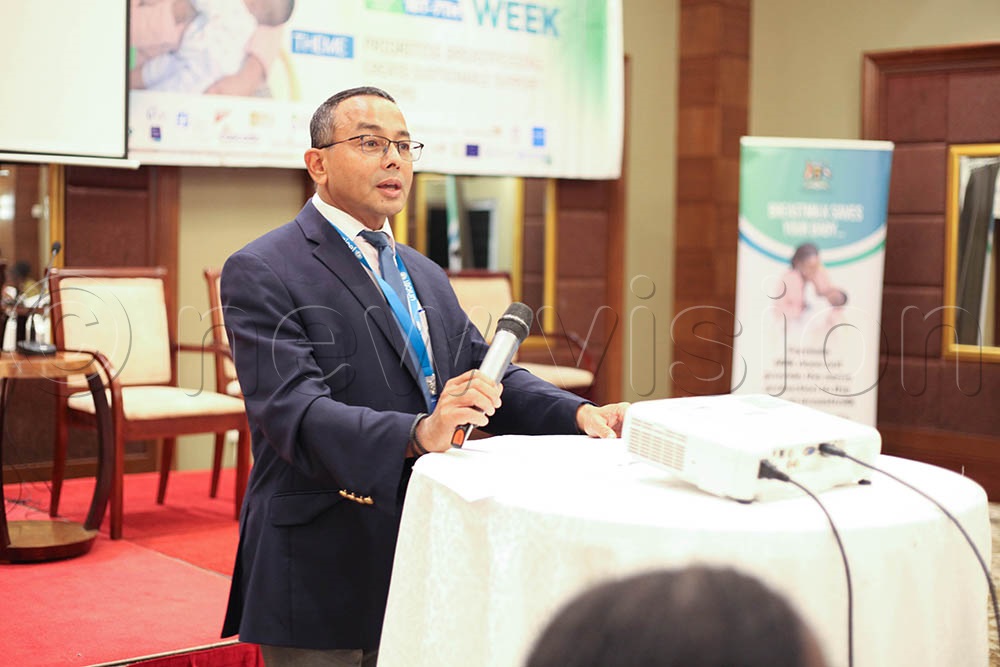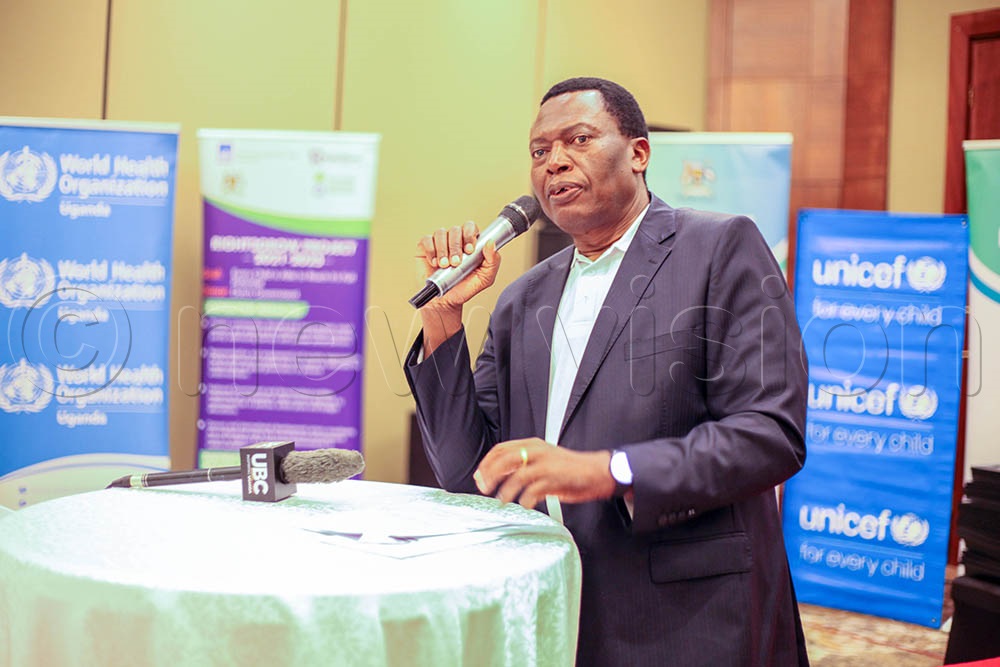Health experts call for stronger breastfeeding support systems
Dr Samalie Namukose, Nutrition Commissioner at the Ministry of Health, emphasised that breastfeeding should begin within the first hour of birth and continue exclusively for six months before introducing complementary nutritious foods, while breastfeeding continues up to two years and beyond.
Namukose outlined the 2025 campaign’s theme, 'Prioritise Breastfeeding, Create Sustainable Support Systems', and its objectives, which include raising public awareness, integrating breastfeeding into health and social protection systems, and advocating for supportive workplace policies. She also called for community-level action. (Credit: John Musenze)
Health experts have urged urgent action to close persistent gaps that hinder mothers from sustaining breastfeeding to sustain Uganda’s achievements in promoting breastfeeding.
At a breakfast meeting to launch the 2025 World Breastfeeding Month campaign today held at the Sheraton Hotel, Kampala, the Ministry of Health revealed impressive statistics: 94% of infants under six months are exclusively breastfed, 96% have been breastfed at some point, and 82% are put to the breast within one hour of birth.
Dr Samalie Namukose, Nutrition Commissioner at the Ministry of Health, emphasised that breastfeeding should begin within the first hour of birth and continue exclusively for six months before introducing complementary nutritious foods, while breastfeeding continues up to two years and beyond.
Namukose outlined the 2025 campaign’s theme, 'Prioritise Breastfeeding, Create Sustainable Support Systems', and its objectives, which include raising public awareness, integrating breastfeeding into health and social protection systems, and advocating for supportive workplace policies. She also called for community-level action.
These numbers reflect the significant effort we have made. A mother should be free to pull out the breast in the taxi without being stigmatised, and we must protect breastfeeding from the aggressive marketing of substitutes.”
Representing the Minister of Health, Dr Charles Olaro, Director General of Health Services, called breastfeeding one of the most powerful investments for children, mothers, communities, and the country.
He highlighted the importance of support for teenage mothers and vulnerable women, urging the use of digital platforms to share information and the expansion of breast milk banks for premature babies.
“Support means access to information, encouragement from family and community, and workplace flexibility. We must spread this responsibility widely,” he said.
The UNICEF Country Representative, Dr Robin Nandy commended Uganda for outperforming global averages but warned that inequities persist, pointing to alarming rates of wasting and stunting in food-insecure and refugee-hosting districts, and urged systemic change:
“Compared to the global situation, Uganda is doing really well, but we still have work to do. Breastfeeding cannot be solely a personal responsibility. "We have to create an enabling environment, especially for mothers in the informal sector who have no maternity leave or breastfeeding areas," he said.
He stressed the need to address uncomfortable issues like supporting teenage mothers to both breastfeed and return to school and called on men, employers, and community leaders to champion the cause:
“Without men supporting our women, we are not going to get to where we want to get to.”

Juliana Muiruri, the head of Nutrition and Food Systems at the World Food Programme, pledged continued collaboration with government and communities to integrate breastfeeding promotion into all WFP programmes.
“We pledge to keep building the capacity of health workers and community leaders to provide culturally appropriate breastfeeding counselling. When we support families, we nourish the future,” she said.
Dr Kira Koch, Cluster Lead for Universal Health Coverage, who represented World Health Organisation Representative to Uganda Dr Kasonde Mwinga, congratulated Uganda for its progress but cautioned that less than half of babies worldwide are breastfed as recommended, with workplace barriers and short maternity leave contributing to early cessation.
Koch recommended more breastfeeding-friendly workplaces, extended maternity leave, especially for women in the informal sector and enforcement of the international code on marketing breast milk substitutes.
“Uganda’s three-month maternity leave often forces mothers to stop breastfeeding sooner than advised. It is therefore important that we jointly address those challenges,” she noted.
She also called for more training for health workers and support for establishing breast milk banks.
“Breastfeeding is not the sole responsibility of a woman; it requires collective, multi-sectoral approaches,” she noted.
The Uganda Demographic Health Survey 2022 indicates that exclusive breastfeeding rates in children 0-6 months have increased to 94%, while 96% of children were reported to have ever been breastfed.
In addition, 82% were reported to have been put on the breast within one hour of birth, while 86% were put skin-to-skin with the mother within the first hour of birth to promote breastfeeding.